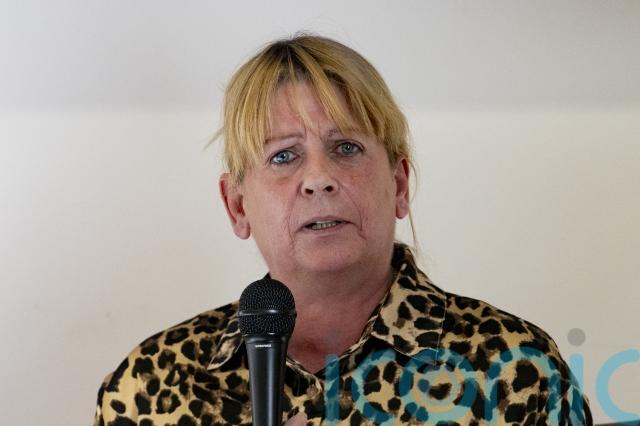
A Supreme Court battle over the law that brought an end to police investigations into the Northern Ireland Troubles is “constitutionally profound”, justices have heard.
The Northern Ireland Office is appealing against a Northern Ireland Court of Appeal (NICA) ruling which partially upheld an earlier decision ordering parts of the 2023 Legacy Act to be disapplied.
The Act, introduced by the previous Conservative government, ended police investigations and inquests related to the Troubles and established a new body, the Independent Commission for Reconciliation and Information Recovery (ICRIR), to oversee them.
But Northern Ireland’s High Court and NICA both found that parts of the Act were incompatible with human rights and undermined the rights of victims in breach of the Windsor Framework, which was signed following the UK leaving the EU.
The framework states that the Government must ensure that various rights and entitlements in Northern Ireland, enshrined by the 1998 Good Friday Agreement, cannot be diminished.
The NICA ruled that the Legacy Act created a “diminution” of rights for victims.
It also found that a Government veto power over what sensitive material can be disclosed to bereaved families by the ICRIR was unlawful, as it prevented its investigations from being compatible with human rights.
The Government has taken the case to the UK’s highest court in London despite pledging to overhaul the Act, with its barristers telling a hearing on Tuesday that the case was “constitutionally profound”.
In written submissions, Sir James Eadie KC, for the Government, said that the NICA “failed to grapple with the legal analysis required of it” in relation to how the Windsor Framework applied.
He said: “Its reasoning is in material part no more than bare assertion.”
He continued: “Despite the very different political and economic purposes of the Windsor Framework, it is said that it now governs those issues across a wide swathe and precludes the ability of Parliament to legislate to take a different approach to them.
“That was not the intended effect of the Windsor Framework, and it is not, properly analysed, the true legal effect of the Windsor Framework.”
Sir James also said that the veto power “only relates to disclosure of sensitive information that would risk prejudicing national security” and that it was “not objectionable in principle, or incompatible, for that decision to be taken by the executive”.
The Legacy Act was introduced despite opposition from all the main political parties at Stormont and the Irish government.
Following its election in July last year, the Labour Government pledged to reform the Act, including by scrapping many of its most controversial provisions.
The Northern Ireland Secretary, Hilary Benn, and Ireland’s Deputy Premier, Simon Harris, unveiled a new legacy framework last month.
But the Government has pressed ahead with the Supreme Court challenge, claiming that it will focus on issues with wider implications beyond the Act.
In court documents, the Supreme Court was told that 20 legal challenges were launched against the Legacy Act “within days” of its introduction.

The case of four Troubles victims – Martina Dillon, John McEvoy, Brigid Hughes and Lynda McManus – was heard in 2023.
Ms Dillon’s husband, Seamus, was shot dead by loyalists in Dungannon in 1997, and Ms Hughes’ husband, Anthony, was killed by security forces in Loughgall in 1987.
Mr McEvoy and Ms McManus’ father, James, were both seriously injured when attacked by loyalists in 1992 in Kilcoo and Belfast, respectively.
In February 2024, Mr Justice Colton found that provisions within the Act, including conditional immunity for perpetrators of some Troubles crimes in exchange for co-operation with the ICRIR, breached victims’ rights.
The Government did not appeal against the immunity finding but did challenge other aspects of the judgment, including those related to the Windsor Framework.
Its appeal was unsuccessful, leading Mr Benn to take the case to the Supreme Court.
In written submissions for the Supreme Court hearing, John Larkin KC, for the victims, said the findings of the courts were “plainly correct” and that there was “no error of law” by the NICA.
He continued that the ICRIR was “structurally incapable of ensuring that the next of kin or victim must be involved in the procedure to the extent necessary to safeguard his or her legitimate interests”.
Several other bodies are involved in the case, including Amnesty International UK, the Northern Ireland Human Rights Commission, and the Northern Ireland Veterans Movement.
Monye Anyadike-Danes KC, for Amnesty, said in written submissions that the NICA decision should stand.
She said: “As a class, legacy investigations that would formerly have required an inquest constitute an especially grave and complex category of investigations requiring the procedural features the NICA identified as lacking to ensure effectiveness.”
She also said that there was “extensive evidence of systematic state perpetration and collusion in gross human rights violations” and “ongoing efforts to conceal the same” in Troubles investigations.
The hearing before Lords Reed, Hodge, Lloyd-Jones, Hamblen and Stephens is due to conclude on Thursday, with a judgment expected at a later date.
Subscribe or register today to discover more from DonegalLive.ie
Buy the e-paper of the Donegal Democrat, Donegal People's Press, Donegal Post and Inish Times here for instant access to Donegal's premier news titles.
Keep up with the latest news from Donegal with our daily newsletter featuring the most important stories of the day delivered to your inbox every evening at 5pm.